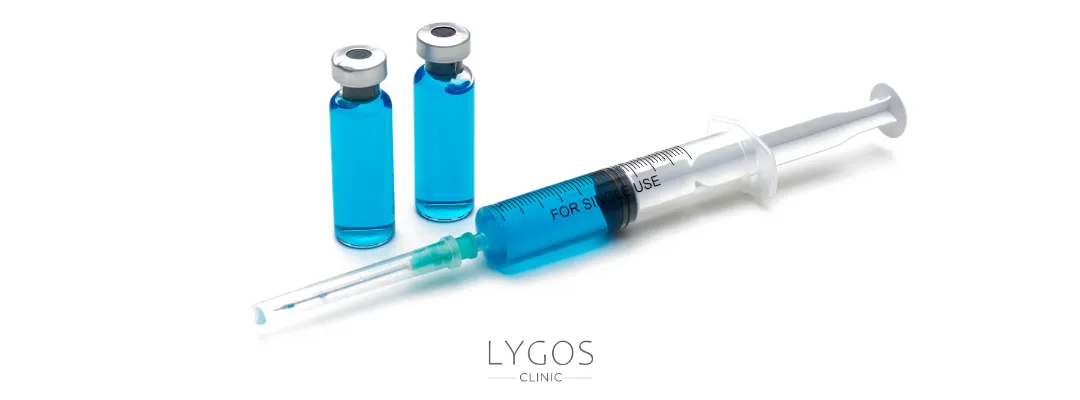What is Hepatitis B Vaccine? | Side Effects | LYGOS 2025

Hepatitis B Vaccine: Benefits & Side Effects
Hepatitis B vaccine is an important childhood vaccine, usually given in three doses to develop immunity against the hepatitis B virus. The vaccine stimulates the immune system to produce protective antibodies against the hepatitis B virus.
Especially in newborns, it is recommended to administer the first dose within the first 24 hours after birth. After the first dose, one or two more doses are given at set intervals. This vaccination program is highly effective in helping the body develop immunity to the virus, and research shows that people who receive the Hepatitis B vaccine can have lifelong protection against the virus.
What is Hepatitis B Vaccine?

The hepatitis B vaccine is an immunization tool that provides the body with strong protection against the hepatitis B virus, reducing the risk of infection with this virus. The vaccine stimulates the immune system and promotes the production of antibodies against the virus, thus providing effective protection against the disease. This vaccine, which is recommended for newborn babies within the first 24 hours, is equally important for adults.
Hepatitis B is an infection of the liver caused by the introduction of this virus into the body. When the disease is acute, it can be mild with short-term symptoms and recovery with appropriate treatment. However, in chronic cases, more serious liver problems can occur. Acute hepatitis B infection often manifests itself with symptoms such as fever, loss of appetite and fatigue, while chronic hepatitis B is characterized by longer-lasting symptoms such as jaundice, darkening of urine color, nausea, vomiting and abdominal pain.
The safest and most effective way to protect against the hepatitis B virus is vaccination. Since this virus can be transmitted through blood, wounds and other bodily fluids, the Hepatitis B vaccine, which is recommended from infancy, greatly reduces the risk of transmission. Vaccination of infants as well as adolescents and adults provides lifelong protection against the virus. Vaccination is also particularly recommended for people at high risk of contracting hepatitis B.
Why is the Hepatitis B Vaccine Given?
The hepatitis B vaccine is given to develop immunity against the hepatitis B virus, which targets the liver and carries a serious risk of infection. By triggering antibody production in the body, the vaccine strengthens the immune system and creates an effective shield against the disease. Most people who are vaccinated gain lifelong protection and have a natural defense mechanism against the hepatitis B virus.
How is hepatitis B Vaccine Made?
The hepatitis B vaccine is administered by injection into the upper arm or thigh and is done in a similar way to other standard vaccination procedures. It is usually administered in 3 doses to develop the strongest immunity to the virus. A one-month interval between each dose is ideal. However, if rapid immunity is needed, the three doses can be completed within 21 days.
How Many Doses of Hepatitis B Vaccine?

Hepatitis B vaccine provides effective protection in infants, usually administered in three doses. The first dose is administered within 24 hours after birth to create the first defense against the disease. The second dose is given when the baby is one month old, while the third and final dose is given at six months.
This regular vaccination schedule helps the baby to build immunity against the hepatitis B virus. For adults, three doses of the vaccine are similarly recommended if the person has never had hepatitis B or has not been vaccinated. Most people who complete this vaccination program develop lifelong immunity to hepatitis B.
Who Gets Hepatitis B Vaccine?
The hepatitis B vaccine provides important protection, especially for certain risk groups. This vaccine, which is routinely administered to infants, is also recommended for people traveling to areas where hepatitis B virus is common. It is also administered to immunize people who have sexual partners at risk of infection, people who have not been vaccinated against hepatitis B before, and people who have been in close contact with someone who has the virus. This vaccine provides effective protection against the disease in risk groups.
What are the Benefits of Hepatitis B Vaccine?

The most important advantage of the hepatitis B vaccine is that it protects the body against the hepatitis B virus, creating a strong defense mechanism against this dangerous disease. This protection not only reduces the risk of contracting hepatitis B, but also contributes to the prevention of possible liver diseases by supporting the overall health of the liver. It is also thought that the hepatitis B vaccine may offer protective effects against liver cancer.
The benefits of hepatitis B vaccine can be summarized as follows:
- Provides strong protection against hepatitis B virus.
- Supports liver health and reduces the risk of disease.
- It may offer protective effects against liver cancer.
For these reasons, the hepatitis B vaccine plays an important role in both protecting liver health and preventing serious health problems.
What are Hepatitis B Vaccine Side Effects?

The hepatitis B vaccine is generally a safe vaccine, but in some cases it can cause mild side effects. The most common side effects are tenderness or pain at the injection site, mild headache and mild weakness. In rare cases, some people may experience a skin rash, a fast heart rate or anaphylaxis, which is a severe allergic reaction.
Hepatitis B vaccine side effects include:
- Mild allergic reactions and skin rashes
- Increased heart rate
- Weakness and fatigue
- Headache
- Diarrhea
- Redness and mild pain at the injection site
These side effects are usually mild and disappear spontaneously within a few days. You can click on the link to follow our social media content.


